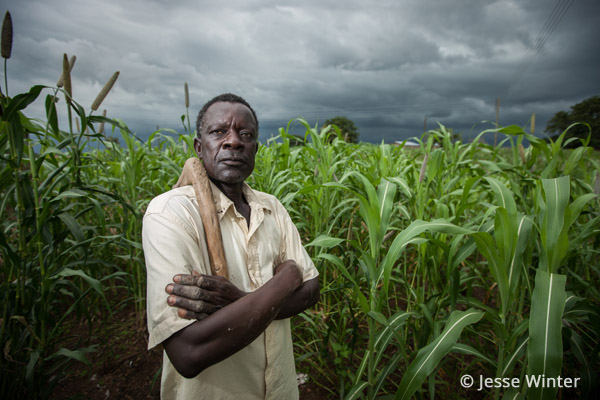Farmers require relevant, timely and continuous information and advice regarding historic climate variability, probabilistic seasonal forecasts, and monitoring and short-lead information about growing season weather. This information can help them to make informed decisions about their farming practices and enable decision-makers to understand and act on the information (Tall et al., 2014). These services are especially important for farmers in sub-Saharan Africa, where up to 95% of crop production is rainfed, making small-scale farmers vulnerable to the impacts of climate change and seasonal variability.
Climate services are most useful when built upon dialogue between climate scientists, local expert forecasters, intermediaries, and users such as farmers, pastoralists, project and programme staff, government planners, businesses and others who benefit from climate information (Ambani & Percy 2014). However the cost and limited reach of face-to-face interactions presents challenges to scaling up climate services for smallholder farmers.
Radio broadcasts, on the other hand, have tremendous reach and coverage, and are very efficient. However, radio broadcasts are conventionally one-way methods of disseminatingdata that do not provide the exchange, discussion and explanation that helps with decision-making. Further, radio broadcasts are fleeting; one either hears them when they are broadcast, or they are missed. If the weather forecasts are broadcast at a time that farmers cannot listen, they are not helpful.
This concept paper explores the potential role that interactive rural radio can play in climate information services in sub-Saharan Africa.
Read the report, which was originally published by the CGIAR Research Program on Climate Change, Agriculture and Food Security in 2016: https://publications.farmradio.org/ccafs-working-paper-interactive-radios-promising-role-in-climate-information-services/

